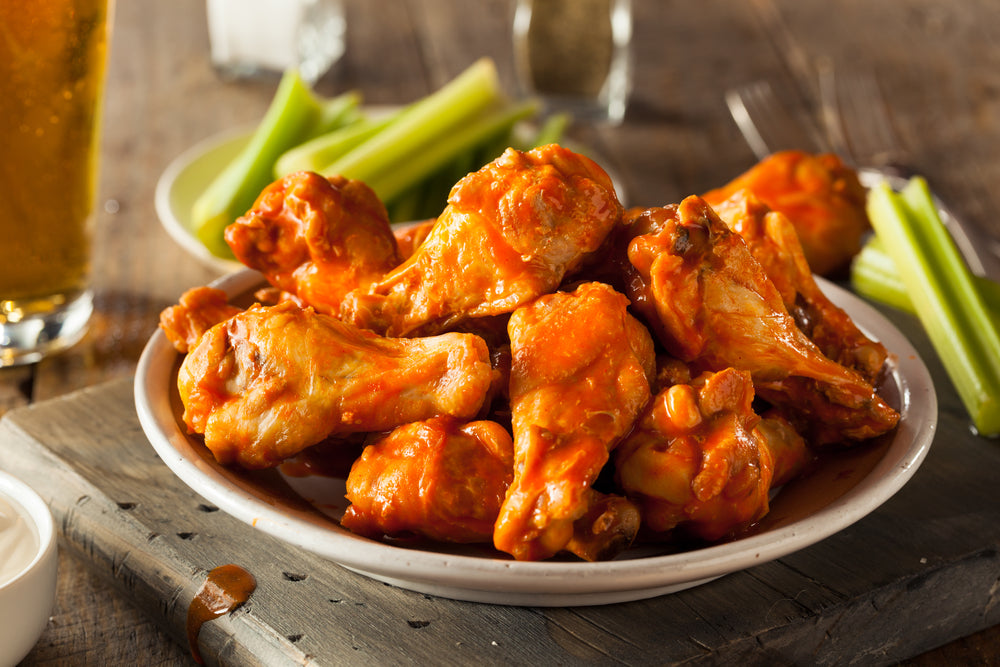
Why Cheat Meals Cause Digestive Distress
Share
Food is considering to be a form of healing, in both the physical sense and the emotional sense. The first one is proven by science in a variety of studies, as it helps provide the nutrients we need to a variety of different bodily systems. The latter is a little more esoteric, but think of the classic euphemism “comfort food.” But what happens when these worlds collide?
An example of this is cheat meals, a concept that is getting a lot of traction with people who are looking to make serious dietary or fitness changes.1 The basic idea is that after a week or so of eating all the “right foods,” you can have one meal where you indulge in whatever craving you want, no matter what it entails. This may be a case of food making you “feel good” emotionally, but it can have drawbacks physically, including digestive issues.
What’s the Purpose of Cheat Meals?
For many people, cheat meals are less about something that actually improves their ability to achieve weight or health goals and more about something that helps them maintain their sanity. This can especially be the case for people who used to have unhealthier diets and are trying to change and improve the way they eat.
The basic philosophy is that maintaining a healthy diet for some people requires a great deal of willpower. In order to reward yourself, you schedule one day or meal per week where you give yourself a chance to eat foods that are outside of the constraints of your diet. This helps satisfy cravings that develop over the week and gives some motivation to keep going on. There are also some studies that suggest that a cheat meal can help increase production of leptin, a hormone that plays a crucial role in satiety.2,3
While this is a small benefit, there are also concerns about cheat days. Some feel that they may actually make it more likely for you to waver in your diet, and that the idea of characterizing them as “cheat meals” may create an association with guilt feelings related to how you eat. The psychological side of this debate is for another day, but it does bear mentioning that studies show that overall, dietary consistency is correlated with more long-term weight loss.
Where Digestive Problems Begin
Now, if you spend a lot of time in dieting communities, you may hear stories about how cheat meals can lead to stomach pain or discomfort. There isn’t one single thing we know that causes this, but diet is related to digestive discomfort in a number of ways, and many cheat meal favorites may cause digestive discomfort. It’s important to mention that if you think a certain component of your cheat meals or any meals may be causing digestive issues, it’s a good idea to reach out to a doctor.
There are general food intolerances and insensitivities that may manifest in digestive issues like occasional gas and bloating. A common example of this is lactose, primarily found in dairy products. If lactose isn’t digested properly, issues may result.
Where do cheat meals factor in here? By nature, a cheat meal is a break from what you normally eat. We are learning more and more about how our gut microbiome is an essential component of our digestive system, and suddenly throwing it into disarray with a cheat meal can lead to some discomfort. This can be exacerbated when it comes to some cheat meals, because people may tend to overindulge – so not only are they eating something their body isn’t accustomed to, but also, they are eating a lot of it. This can be hard for your digestive system to process.
Along with trying to avoid situations that throw your digestive tract out of balance, it is also a good idea to try and focus on consuming things that help keep it in balance. A prime example of this is healthy fiber-rich foods like legumes and ancient grains. In some cases, your body may need a little extra help, including supplements designed for dietary support, like Enzymedica’s Digest Basic™ +PROBIOTICS. Many digestive issues can stem from enzyme deficiencies, and this supplement has an enzyme formula that helps you break down certain foods, combined with a probiotic blend to bring harmony to the microbiome.
For some, the balance that cheat meals bring to the mental side of losing weight is worth the potential issues that may arise. There’s nothing wrong with that, but you want to make sure that you are accounting for that. This may mean investing in extra digestive support so your cheat meals don’t throw off the delicate digestive balance created by your standard dietary choices.
1. Pila E, Mond JM, Griffiths S, Mitchison D, Murray SB. A thematic content analysis of #cheatmeal images on social media: Characterizing an emerging dietary trend. Int J Eat Disord. 2017;50(6):698-706.
2. Dirlewanger M, Di vetta V, Guenat E, et al. Effects of short-term carbohydrate or fat overfeeding on energy expenditure and plasma leptin concentrations in healthy female subjects. Int J Obes Relat Metab Disord. 2000;24(11):1413-8.
3. Romon M, Lebel P, Velly C, Marecaux N, Fruchart JC, Dallongeville J. Leptin response to carbohydrate or fat meal and association with subsequent satiety and energy intake. Am J Physiol. 1999;277(5 Pt 1):E855-61.
4. Gorin AA, Phelan S, Wing RR, Hill JO. Promoting long-term weight control: does dieting consistency matter? Int J Obes Relat Metab Disord. 2004;28(2):278-81.

